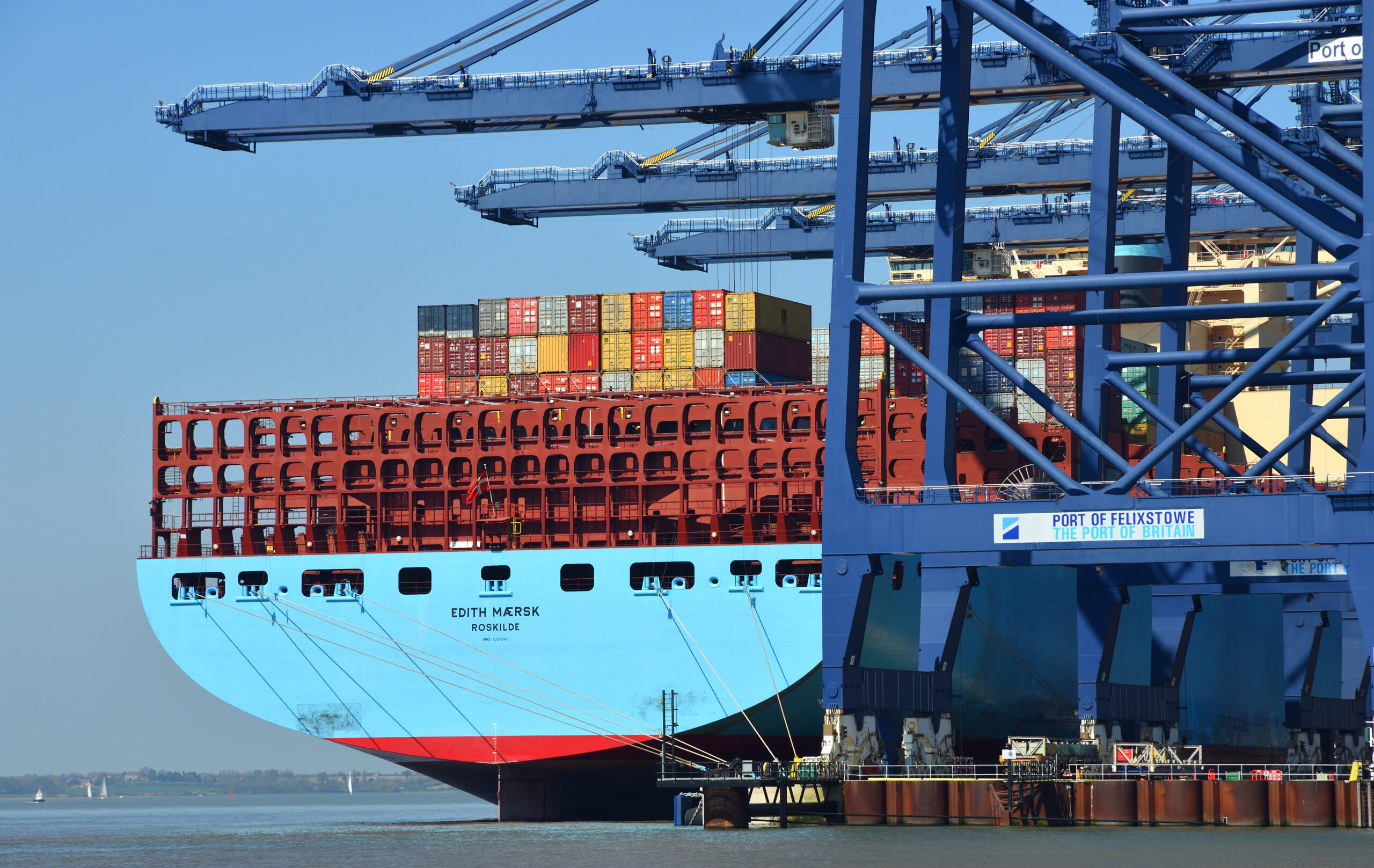In a new whitepaper commissioned by the Methanol Institute, Dr Jeroen Dierickx (iDefossilise) concludes that the EU’s carbon emissions regulations will boost the economic viability of bio- and e-methanol as a low-carbon maritime fuel.
The recent study, led by Dr Dierickx, has found that under the EU’s Fit for 55 regulations, methanol will become increasingly economically competitive when compared against traditional fossil-derived marine fuels.
According to this research, the combined effect of the EU Emissions Trading System (ETS) and FuelEU Maritime regulations will be to incentivise vessel operators to transition to sustainable fuels to avoid penalties on non-compliance. The cost of penalties will increase from €39 per tonne of fossil fuel to €1,997 per tonne of fossil fuel in 2050, Dierickx argues.
The analysis predicts that the average maximum price of bio-methanol will be €1,193 per tonne between 2025-2050, while the price of e-methanol is expected to be €2,238 per tonne over the same period. However, the average maximum price of e-methanol will eventually decrease to €1,325 per tonne from 2034-2050 when the reward factor for use of renewable fuels of non-biological origin (RFNBO) expires in 2034.
These prices will increase by €150 per tonne when the costs imposed by the EU ETS are taken into account.
Gregory Dolan, CEO of the Methanol Institute, said: “The study confirms the profound impact of regulations on the demand for methanol as a marine fuel. The findings indicate that the emerging EU regulatory framework is robust enough to enhance the business case for low-carbon and renewable methanol fuels and fuel blends, supporting the transition to a sustainable maritime industry.”
Key findings of the study include:
- Regulatory penalties and costs: The FuelEU Maritime Regulation sets targets for reducing greenhouse gas emissions from the maritime sector and imposes increasingly severe penalties on fossil fuels such as Very Low Sulfur Fuel Oil (VLSFO). Non-compliance costs for vessel owners will escalate from €39 per ton in 2025 to €1,997 per ton by 2050.
- EU ETS implementation: Regulatory costs under the EU ETS, carbon emission trading scheme that also covers the maritime sector, are phased in from 40% in 2024 to 100% in 2026. With a projected market price of €100 for CO2 emission allowances, the additional cost for VLSFO is estimated at €321 per ton.
Compliance options: To avoid these penalties, vessel owners can use bio- or e-methanol, or blends of fossil and sustainable methanol as viable compliance options and encourage the development of a sustainable methanol supply chain. - Price estimates: The analysis forecasts the average maximum price for bio-methanol to be €1,193 per ton from 2025-2050. For e-methanol, prices are estimated at €2,238 per ton from 2025-2033, decreasing to €1,325 per ton from 2034-2050 when the reward factor for using renewable fuels of non-biological origin (RFNBO) expires in 2034. Including EU ETS costs, these prices rise by €150 per ton for both fuels.
- Fuel blends: Every five years, the FuelEU Maritime greenhouse gas emission targets increase, from 2% in 2025 to 80% by 2050. These targets can be met by blending bio- or e-methanol with conventional natural-gas based methanol, increasing from 14% bio-methanol and 7% e-methanol in 2025 to 28% bio-methanol and 25% e-methanol in 2035, and fully 100% bio-methanol and 91% e-methanol by 2050.
- Economic viability: Both bio- and e-methanol show significant economic potential under the new regulations. The FuelEU Maritime Regulation and EU ETS are expected to effectively promote the adoption of these sustainable fuels in maritime shipping.
Source: The Methanol Institute



